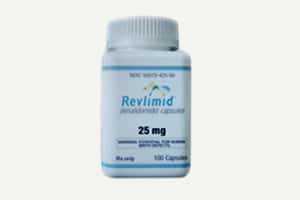 Celgene’s ambitions for its cancer treatment Revlimid were hit in the UK today when authorities failed to recommend expanding the drug’s use to cover a rare bone marrow disorder.
Celgene’s ambitions for its cancer treatment Revlimid were hit in the UK today when authorities failed to recommend expanding the drug’s use to cover a rare bone marrow disorder.
The National Institute for Health and Care Excellence (NICE), which provides healthcare guidelines for the NHS in England and Wales, issued draft guidance that does not recommend the use of Revlimid (lenalidomide) for the treatment of myelodysplastic syndromes (MDS) in people with a gene mutation known as a deletion 5q cytogenetic abnormality.
Revlimid won EU approval in June this year to treat MDS – a group of bone marrow disorders that involved the underproduction of blood cells due to a dysfunction of the marrow, potentially leading to conditions such as acute myeloid leukaemia and anaemia.
It is diagnosed in about 2,000 people each year in England, although the potential market for Revlimid is even smaller, considering only half of this population will have some form of genetic abnormality, one third of whom will have the specific 5q abnormality.
The negative guidance is down to uncertainty about Revlimid’s ability to extend lives, and was based on data provided by Celgene.
As such, NICE’s appraisal committee did not think the drug justified its £3,780 per month price-tag, upholding the previous draft guidance it made in July 2013.
“NHS resources are limited and NICE has to decide what treatments represent best benefit to the patient as well as the NHS, and in this case the manufacturer did not provide enough certain evidence to justify the price they are asking the NHS to pay,” said Sir Andrew Dillon, chief executive of NICE.
There are no medicines recommended specifically by the NICE for this type of MDS, and the main treatment option is best supportive care, including blood transfusions.
NICE will issue final guidance on the use of Revlimid in MDS at a later date. Meanwhile, Revlimid is already used regularly on the NHS as part of a combination with dexamethasone to treat adults with multiple myeloma.
It is also one of Celgene’s biggest-selling treatments, making almost $3.8bn for the company in 2012.




